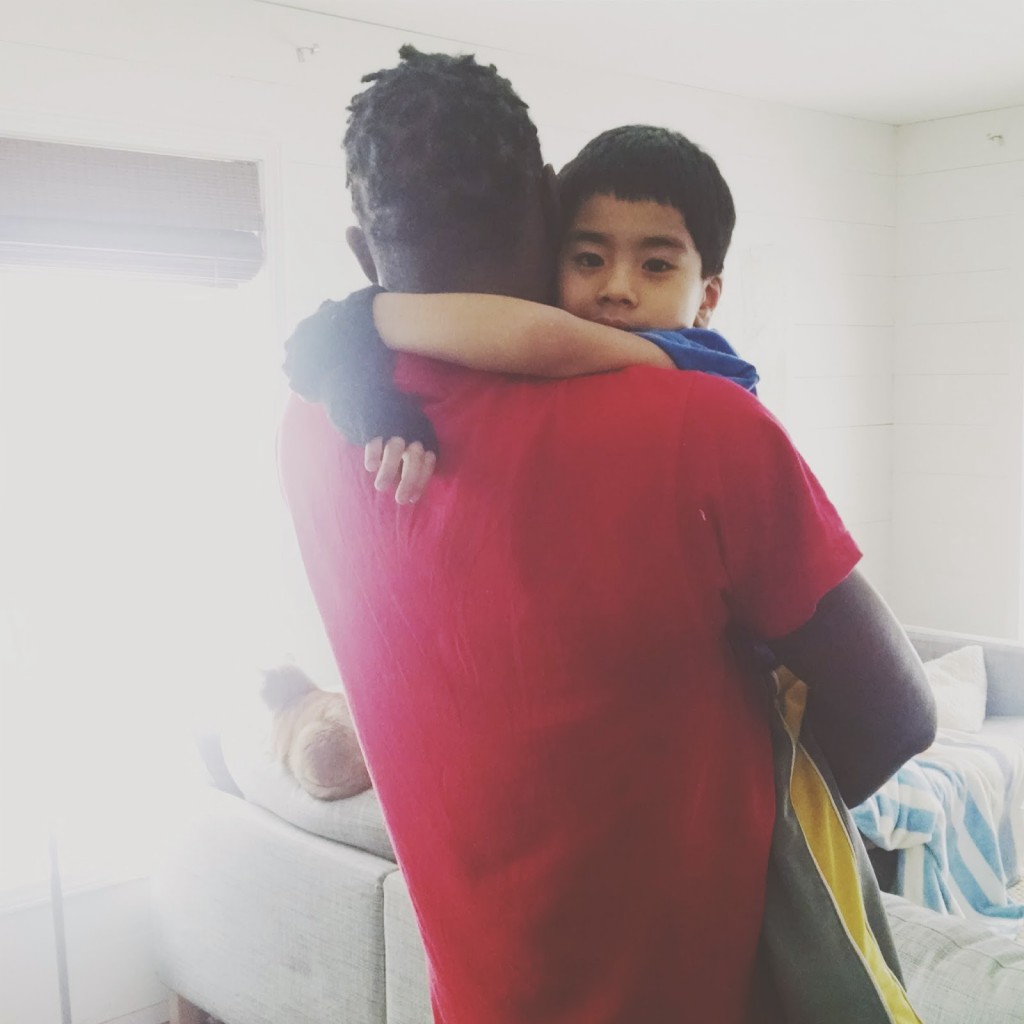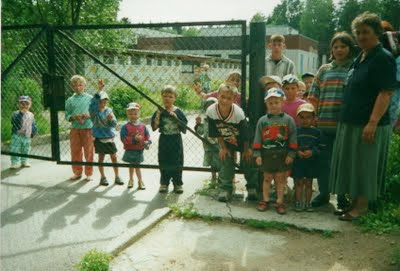You may have no intention of adopting, but know (and love) friends and family members who have. I commend you for taking the time to learn about how you can best support these families in your life!
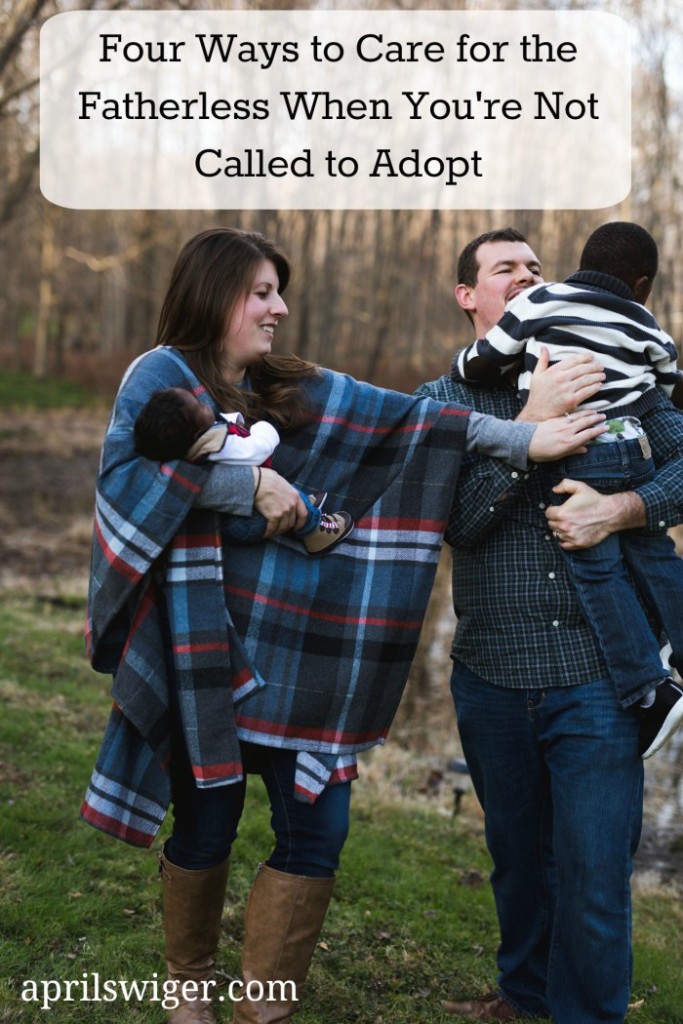 Not everyone is called to adopt, but Scripture is clear that all are called to care for the fatherless and act on their behalf. I love Isaiah 1:17, which says “learn to do good; seek justice, correct oppression; bring justice to the fatherless, plead the widow’s cause.” Every Christian is called to do good before God, and that includes seeking out justice for those who are being oppressed.
Not everyone is called to adopt, but Scripture is clear that all are called to care for the fatherless and act on their behalf. I love Isaiah 1:17, which says “learn to do good; seek justice, correct oppression; bring justice to the fatherless, plead the widow’s cause.” Every Christian is called to do good before God, and that includes seeking out justice for those who are being oppressed.
This is one of the main reasons I’ve chosen to write a book about foster adoption (enter your email in the sidebar for updates about a late Spring release!). Adoptive families need their churches, and fellow believers, to come along side them with right thinking and a Christ-like perspective as they follow the path God has called them to. Pastors, elders, and ministry leaders ought to be equipped with a basic knowledge of the different types of adoption, helpful adoption lingo, and an arsenal of how to best support the growing families in their congregation.
I must say though, our church is amazing, and they are very adoption-friendly. We have received nothing but support from them, delicious casseroles when both boys arrived to our family, clothes, books, toys, and gift cards. You name it we probably received it! It’s not about the tangible though (although those things were life-savers). More importantly, it’s the attitude of the people in our congregation that have blessed us the most.
Here are four ways to care for the fatherless when you’re not personally called to adopt:
1) Respect boundaries that have been set
A few months after our oldest son arrived, we noticed some quirky behaviors that alerted us to some possible attachment issues. We kindly asked our small group, and others in our church who regularly interacted with him, to respect a few boundaries we needed to put into place for his good. He needed to learn who mom and dad were, and who was going to meet his needs. It’s not going to be the sweet old lady we see every Sunday who wants to give him candy, or our amazing small group who showers him with lots of love and attention. It’s Adam and myself, and he needed a renewed focus on that goal.
Everyone responded to us in a way that showed they love our little boy immensely, and respected our role as his new parents. Our son learned that high fives on Sunday mornings are more appropriate than hugs and kisses, and “I love you” is reserved only for family (for now). He has grown so much since we set these boundaries, and thanks to our amazing church, they played a massive role in that healing! We are so grateful.
2) Have a teachable heart in regard to birth parents, loss, and race issues
I’ve had countless conversations on Sunday mornings with teachable and open-hearted people in our congregation. I could not be more thankful for where God has placed us. There is a respect for our boys birth parents, an understanding of the loss our sons have experienced, and a growing openness for the fact that, as black boys, they will likely be racialized as they grow older (this one is the most difficult one we’ve encountered, being in a predominantly white community, as it takes time for lifelong false beliefs about different ethnicities to be broken down). There is not much more I could ask for in regard to support for our boys! Our church has done this well.
3) Remember that your words matter
Educating yourself on adoption lingo will bless adoptive couples immensely. Remembering that any child in their family is “their own”, whether through birth or adoption, is one of the greatest gifts you can give them. Acknowledging the loss their child has been through (loss of birth parents, siblings, friends, a prior foster home, and everything familiar to them) is a very important part of caring for adoptees. It’s easy for us to want to celebrate (the orphan has a home!), but that’s not the case for the child who has lost everything. There needs to be an understanding and respect of that.
We had one awkward encounter a few days after our oldest son joined our family. A kind older woman asked him if he liked his “new mommy and daddy.” He looked at her like she had three heads. His little two and a half year old brain was probably thinking “I have a mommy and daddy, and they aren’t it!” We did quickly become “mommy and daddy” to him within a week or two, which we learned is typical for kids in foster care. Up until that point we were Miss April and Mister Adam to him. He had just been removed from his birth mom a few days prior, and was probably so confused and scared about what the future would hold for him. That question was well-intentioned, but highly inappropriate.
These are the sort of encounters that become opportunities for us as adoptive couples to show tons of grace, and kindly educate. I gently corrected her comment and let her know that he has a mommy and daddy who love him very much, and that we are thrilled to have him be a part of our family right now. I don’t think she understood, and that’s ok, but I believe in situations like this grace will always trump the snarky remarks we may be tempted to make.
It’s important for supporters to keep in mind that their questions and remarks, likely born out of curiosity, could put the adoptive family in an awkward position. If their children are older, and can understand, comments that are not well thought out could be hurtful to them and disrespectful to their fragile past. It’s never ok to make judgments about a child’s birth parents, racial slurs, or comment about how you “can’t believe no one wanted them”.
4) Be committed, with hope, for the long haul
The church ought to be a place where adoptive families can enter in with all of their messiness, and receive love and support as they seek to lead these precious kiddos to hope and healing, and ultimately, to our Savior. You may not be called to adopt, but you are called to care for the fatherless. Learning how to do that in a way that blesses the adoptive families in your life will be a precious gift to them.
This will look differently for each family, so don’t be afraid to ask them what they need, and how you can best support and love them through the years. Some families may be more or less open with you about their children and their needs. Some may not know what they need because they’re still in the fog, trying to get a grasp on what would be best for their kiddos. The love and faithfulness of a church who is in it for the long haul, just as the adoptive parents are, is a beautiful way to show the gospel to families who have grown through adoption.
Love on the family if their placement fails. Pray for their kids when an important court date is near, or they have a visit with their birth parents. Bring them meals when a new child enters their family. Show them immense amounts of grace when their son or daughter acts out during worship. Don’t assume their child is “troubled” or “damaged” or destined to work at the grocery store for their entire lives because X diagnosis runs in their birth family.
If you believe the gospel, then you know that no one is too far gone! Not a single one. Even the most broken, messy, un-attached child, with the most disturbing past is not too far gone for our great Redeemer. It’s not too hard for him to save them, and heal them, and it shouldn’t be too hard for you to believe he can save them and bring them complete healing either.
Let us not forget that he saved you and me in our sin. We need Jesus just as much as our children from foster care do. Believe in the power of the gospel to heal, and save, having great hope for their future, praying for their spiritual adoption into the family of God. This is the best way you can care for the fatherless without actually adopting.
_______________________________
 April is a follower of King Jesus, wife, mother, writer, and adoption advocate. She lives in New England where her husband serves as a worship-pastor. Her introverted nature loves to read, sip coffee, and cook nourishing food for those she loves. Read more on her blog Redemptive Homemaking.
April is a follower of King Jesus, wife, mother, writer, and adoption advocate. She lives in New England where her husband serves as a worship-pastor. Her introverted nature loves to read, sip coffee, and cook nourishing food for those she loves. Read more on her blog Redemptive Homemaking.
 Erin Garrison has been a pediatric physical therapist since 2010 and was first introduced to The Sparrow Fund through serving on an orphanage trip in October of 2016. It was during this trip that her heart was stirred and she was drawn to a big career change in order to serve children living in orphanages, their temporary caregivers, and families who move forward to adopt them. Her passion is to help equip and train the orphanage staff on developmental and handling techniques to assist in reducing delays. She also seeks to be a therapeutic resource for families as they transition children to home and get connected to the services needed. You can contact Erin directly at eringarrison@sparrowfund.org.
Erin Garrison has been a pediatric physical therapist since 2010 and was first introduced to The Sparrow Fund through serving on an orphanage trip in October of 2016. It was during this trip that her heart was stirred and she was drawn to a big career change in order to serve children living in orphanages, their temporary caregivers, and families who move forward to adopt them. Her passion is to help equip and train the orphanage staff on developmental and handling techniques to assist in reducing delays. She also seeks to be a therapeutic resource for families as they transition children to home and get connected to the services needed. You can contact Erin directly at eringarrison@sparrowfund.org.













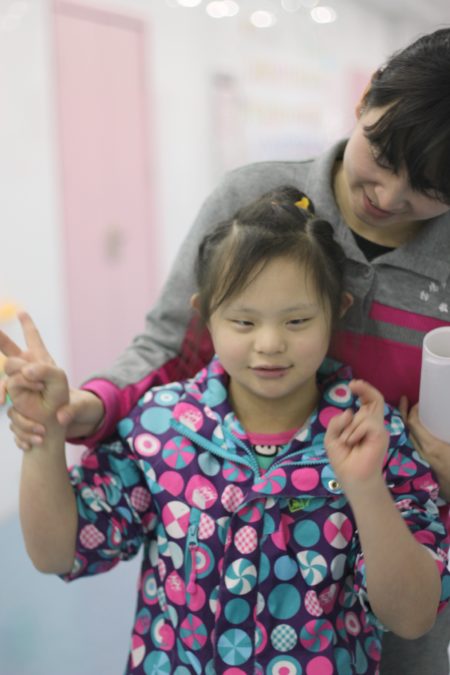

 Not everyone is called to adopt, but Scripture is clear that all are called to care for the fatherless and act on their behalf. I love Isaiah 1:17, which says “learn to do good; seek justice, correct oppression; bring justice to the fatherless, plead the widow’s cause.” Every Christian is called to do good before God, and that includes seeking out justice for those who are being oppressed.
Not everyone is called to adopt, but Scripture is clear that all are called to care for the fatherless and act on their behalf. I love Isaiah 1:17, which says “learn to do good; seek justice, correct oppression; bring justice to the fatherless, plead the widow’s cause.” Every Christian is called to do good before God, and that includes seeking out justice for those who are being oppressed.

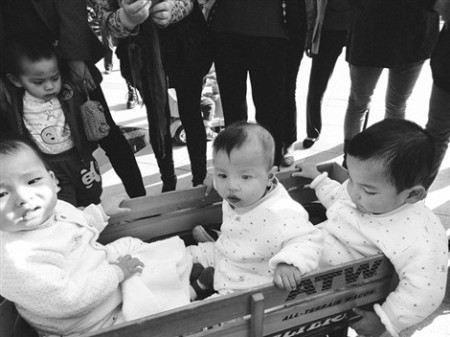 And, when you were a part of the photography workshop in October 2014 when you were only just 11, you were a superstar with that camera. You took one of my favorite pictures from the whole workshop!
And, when you were a part of the photography workshop in October 2014 when you were only just 11, you were a superstar with that camera. You took one of my favorite pictures from the whole workshop!


 So our sweet little Grace Lihua entered our lives at 18 months old. She brought us great joy, and just like any other toddler, we had the opportunity to teach her English, experience the joys of potty training, etc. We have watched her grow in beauty both inside and out, way too fast! She is now six years old and continues to amaze me on daily.
So our sweet little Grace Lihua entered our lives at 18 months old. She brought us great joy, and just like any other toddler, we had the opportunity to teach her English, experience the joys of potty training, etc. We have watched her grow in beauty both inside and out, way too fast! She is now six years old and continues to amaze me on daily. 


